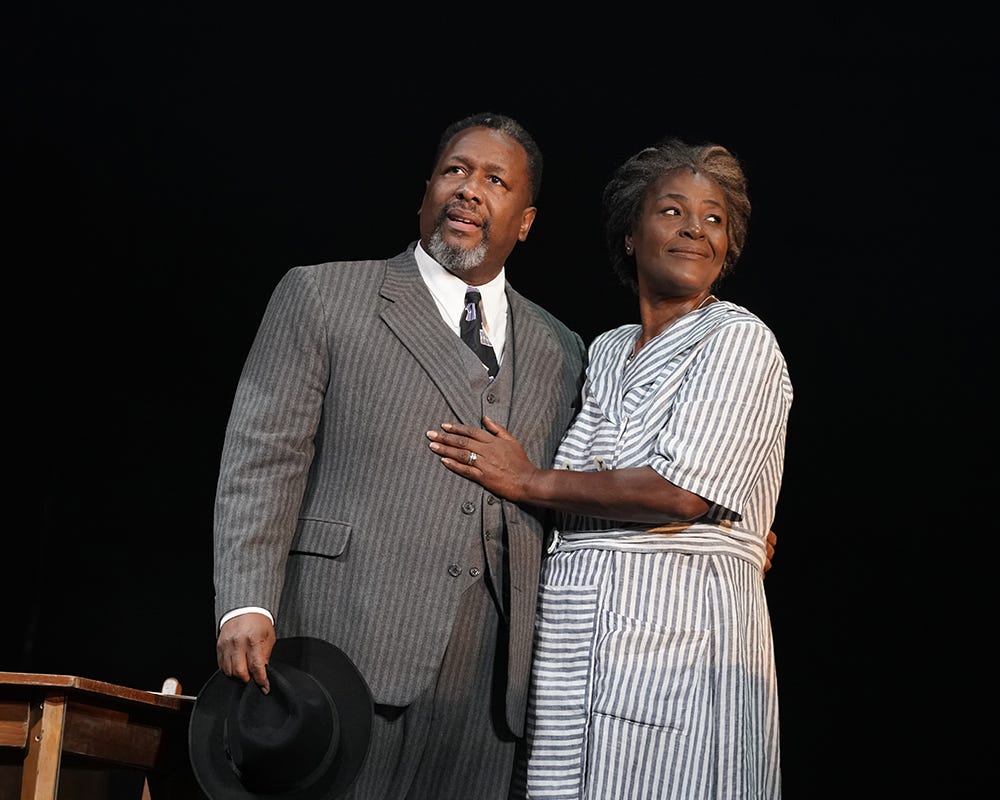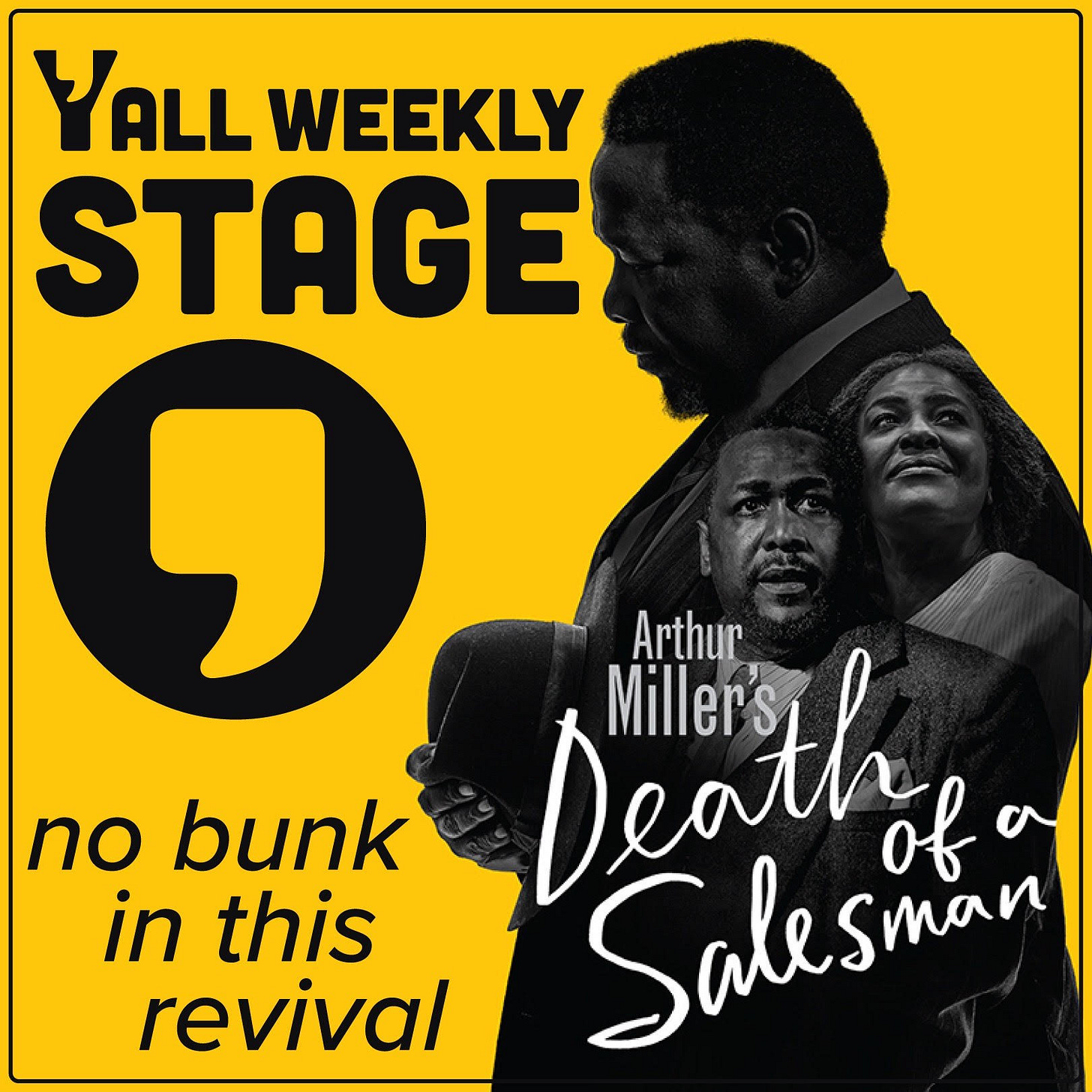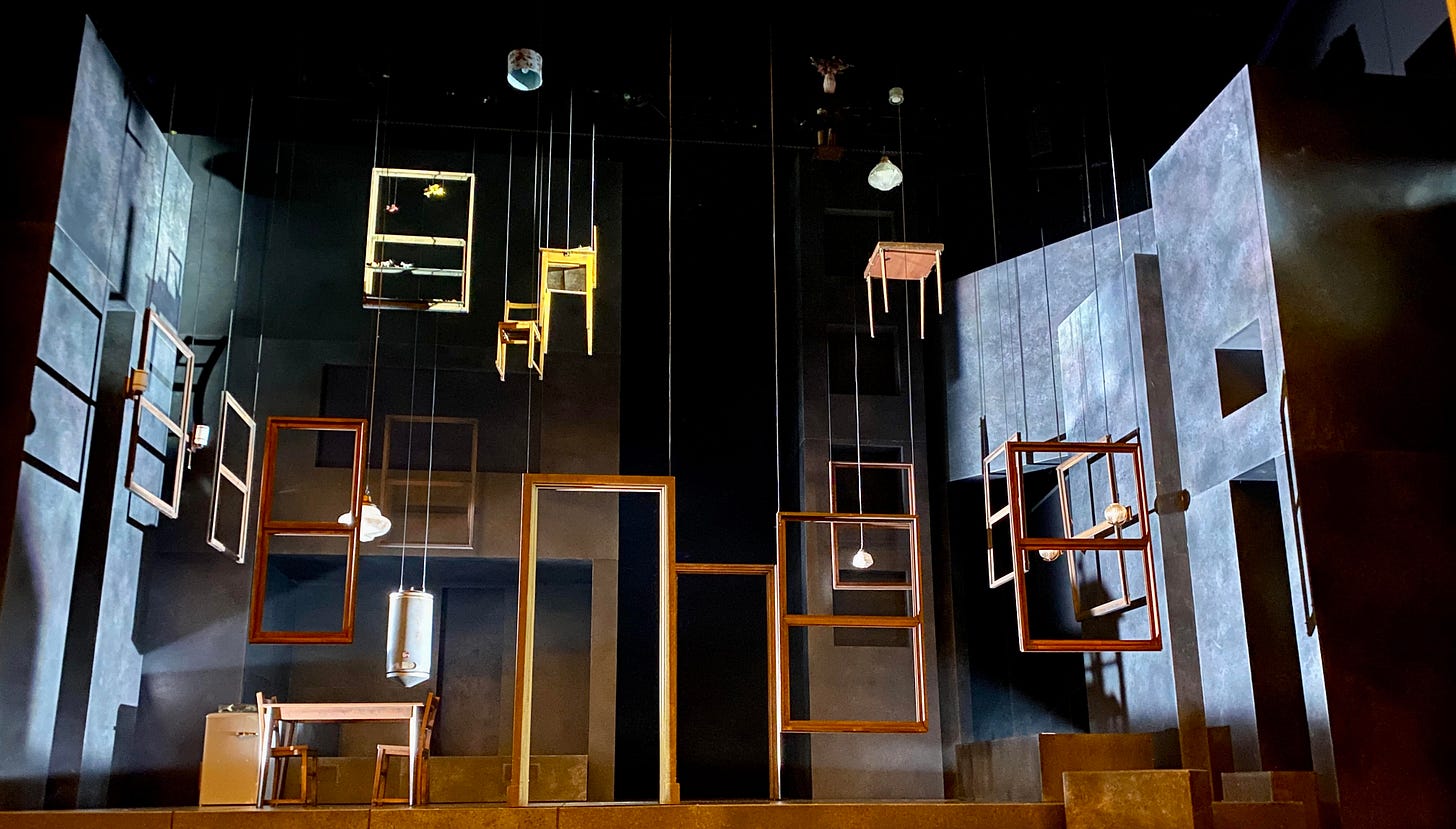Stage: No Bunk in this Revival
Wendell Pierce’s turn as Willy Loman in last year’s revival of "Death of a Salesman" is worthy of a Tony nomination.
Editor’s Note: with today’s Tony Award nominations announcement, including Wendell Pierce’s nomination for Best Actor in a Play, we wanted to share our review from last year.
The Wire deserves the effusive praise it’s received for being the best television show ever. It’s a show of contradictions: hilarious and heartbreaking; raw and rewatchable; well-acted and full of novices. That includes the characters as well, perhaps none more than Detective William “Bunk” Moreland, expertly played by Wendell Pierce.
Bunk is a pragmatist, a cigar-chewing heavy drinker who nonetheless reins in his partner, McNulty, with varying results. He’s crude, but one of the clear moral centers of the show. One of the show’s best scenes pairs Pierce with the late Michael K. Williams, who was a revelation as Omar when the show first aired over 20 years ago. I thought about that scene as I watched the Broadway revival of Arthur Miller’s Death of a Salesman on its last day of previews.
I won’t bury the lede: Pierce’s performance is more than enough to justify a weekend trip to New York City. Salesman’s Willy Loman is an iconic character, but clearly dated; he is a man of his time, but unlike Hamlet or Javert he is not yet timeless. The challenge of inhabiting and breathing new life into such a role makes Pierce’s work all the more impressive; it doesn’t hurt that he had months of practice when the production ran in London’s West End before the pandemic. Pierce is older than when he played his most famous characters, but he has more than enough energy to bring Willy’s madness to life.

British actress Sharon D. Clarke (Linda Loman) joins Pierce from the London production, and she handles the threads of grief that run through her character’s story as expertly as any costume or prop. While the title of the play promises Willy’s death, she has much to grieve before his demise including Willy’s mental state, his deteriorating relationships with his children, his self-destructive tendencies. Perhaps most famously, she laments the lack of recognition for Willy from both his sons and the universe. While the character of Linda reflects the gender politics of 1949, Clarke’s performance transcends easy characterizations. Much of the pain the audience experiences is her pain, a credit to Clarke’s craft.
Miranda Cromwell served as director of the West End production as well, and is able to coax impressive performances from her returning actors as well as new ones. Broadway veteran André De Shields plays Willy’s late brother Ben, and chews the scenery as a psychopomp representing the American Dream. Khris Davis is especially impressive as Willy’s son Biff; he has a thin line to walk as he juxtaposes a naïve teenager in flashbacks with an adult past his prime in the present. His performance is believable, even if his discovery of Willy’s secret has lost some of its drama in the contemporary era.
The cast doesn’t have a weak link in this production, and fans of The Wire will be pleasantly surprised to see Delaney Williams in the role of Charley. Ozark’s McKinley Belcher III shows his range as Willy’s other son Happy, and makes a character conceived over 70 years ago feel effortlessly contemporary.
As much as this publication is grounded in North Carolina, it’s not uncommon for someone to find themselves in New York. This play wasn’t the reason for my last visit; I was there to cover Charlotte FC’s final match of the season, and you may be in New York on business or a family vacation. For me, that’s reason enough to talk up this play: if one Charlottean takes a detour to Times Square to catch Salesman because of this review, it was worth my time to write it.
Death of a Salesman
Hudson Theatre
141 W 44th St, New York, NY 10036
Limited Engagement runs through January 15
Tickets begin at $58




